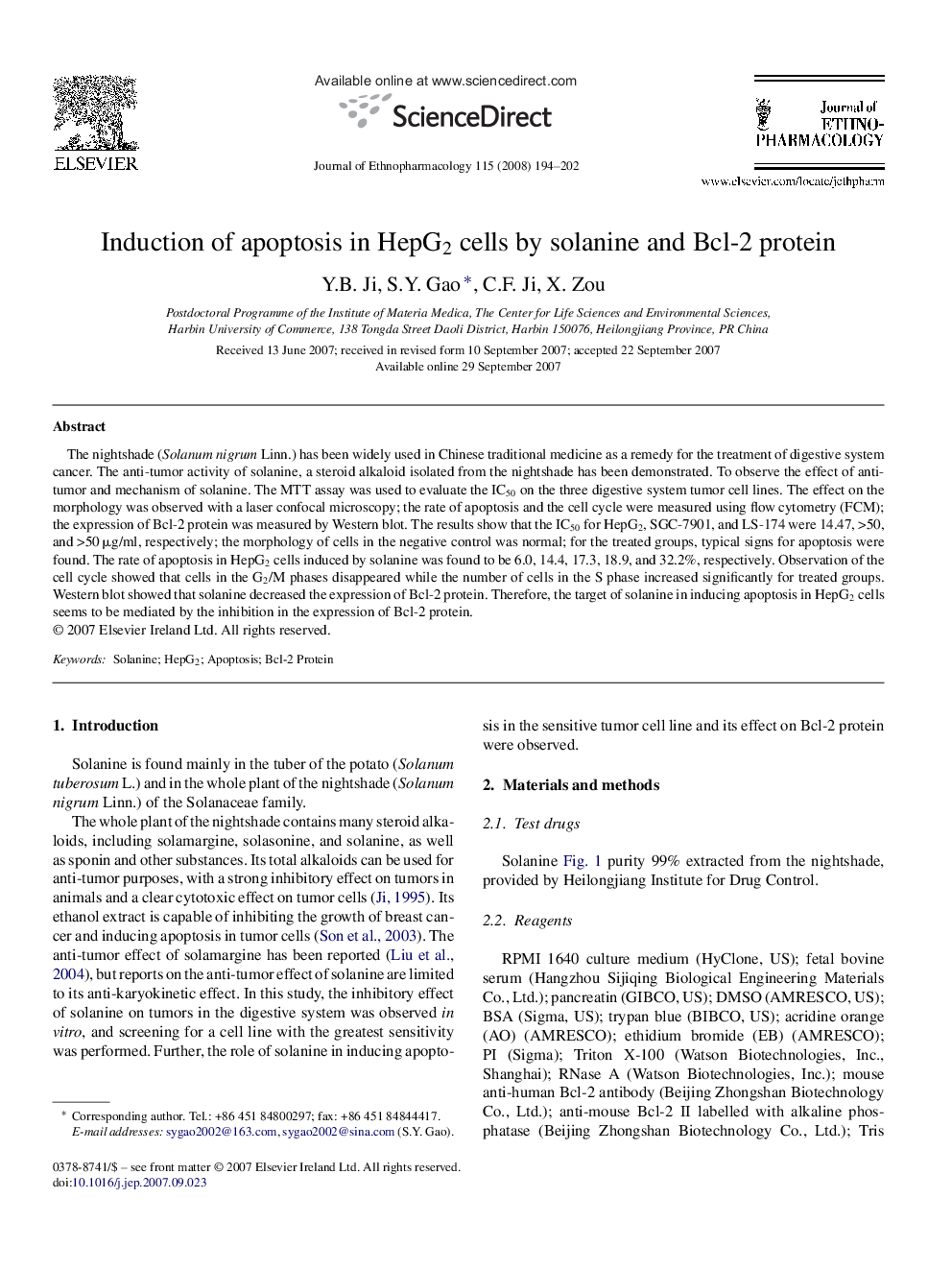| کد مقاله | کد نشریه | سال انتشار | مقاله انگلیسی | نسخه تمام متن |
|---|---|---|---|---|
| 2547459 | 1124059 | 2008 | 9 صفحه PDF | دانلود رایگان |

The nightshade (Solanum nigrum Linn.) has been widely used in Chinese traditional medicine as a remedy for the treatment of digestive system cancer. The anti-tumor activity of solanine, a steroid alkaloid isolated from the nightshade has been demonstrated. To observe the effect of anti-tumor and mechanism of solanine. The MTT assay was used to evaluate the IC50 on the three digestive system tumor cell lines. The effect on the morphology was observed with a laser confocal microscopy; the rate of apoptosis and the cell cycle were measured using flow cytometry (FCM); the expression of Bcl-2 protein was measured by Western blot. The results show that the IC50 for HepG2, SGC-7901, and LS-174 were 14.47, >50, and >50 μg/ml, respectively; the morphology of cells in the negative control was normal; for the treated groups, typical signs for apoptosis were found. The rate of apoptosis in HepG2 cells induced by solanine was found to be 6.0, 14.4, 17.3, 18.9, and 32.2%, respectively. Observation of the cell cycle showed that cells in the G2/M phases disappeared while the number of cells in the S phase increased significantly for treated groups. Western blot showed that solanine decreased the expression of Bcl-2 protein. Therefore, the target of solanine in inducing apoptosis in HepG2 cells seems to be mediated by the inhibition in the expression of Bcl-2 protein.
Journal: Journal of Ethnopharmacology - Volume 115, Issue 2, 17 January 2008, Pages 194–202